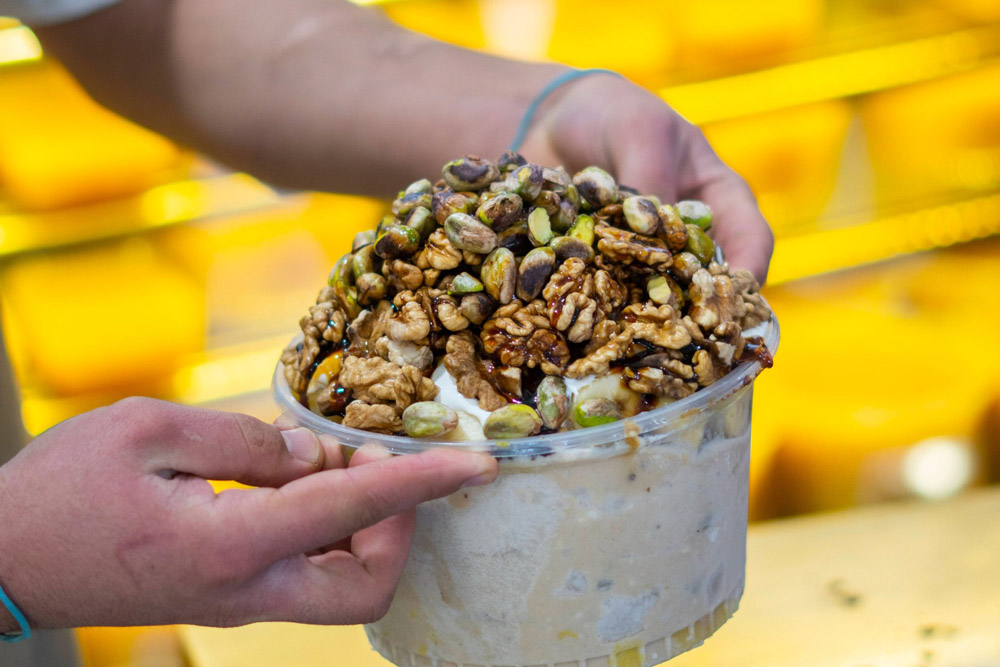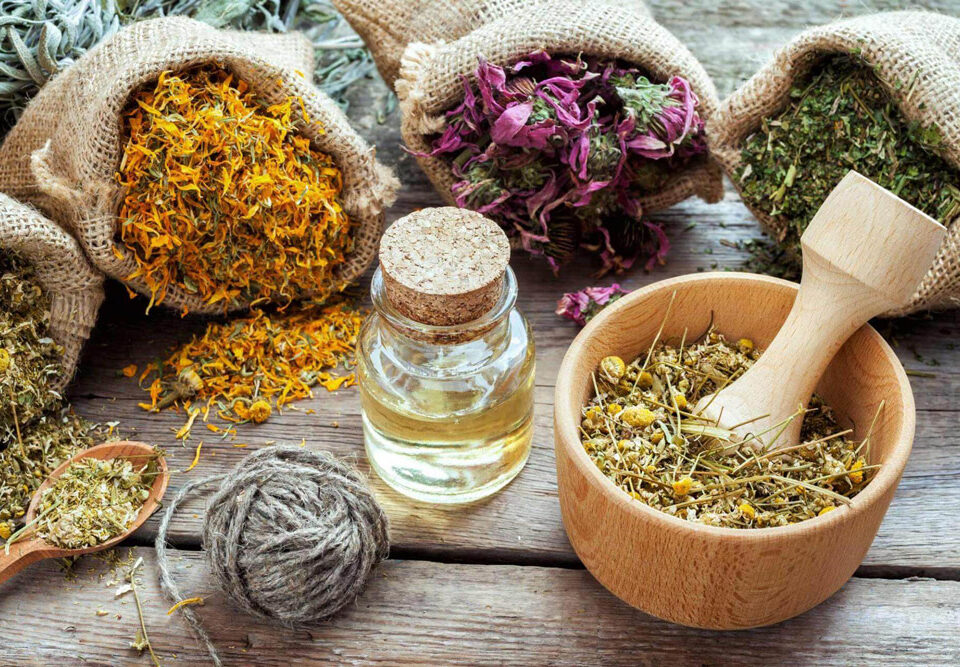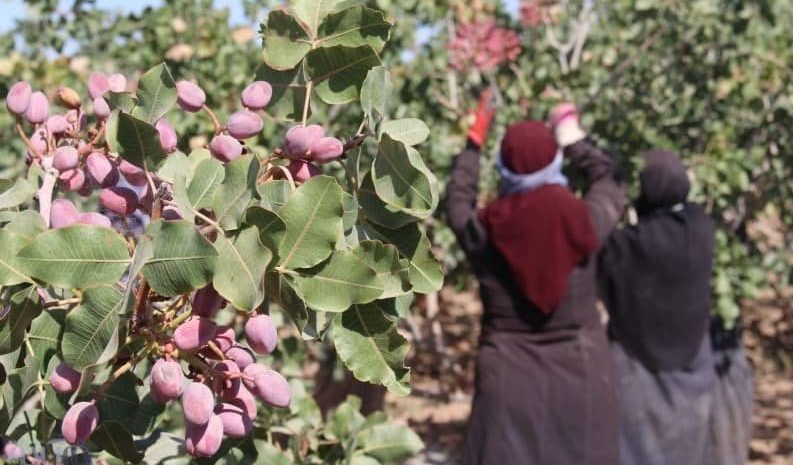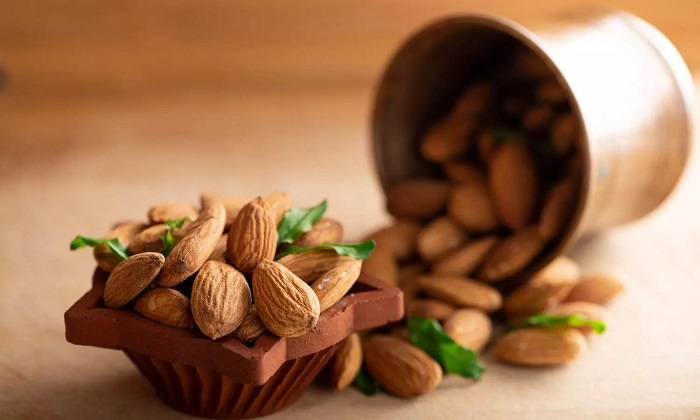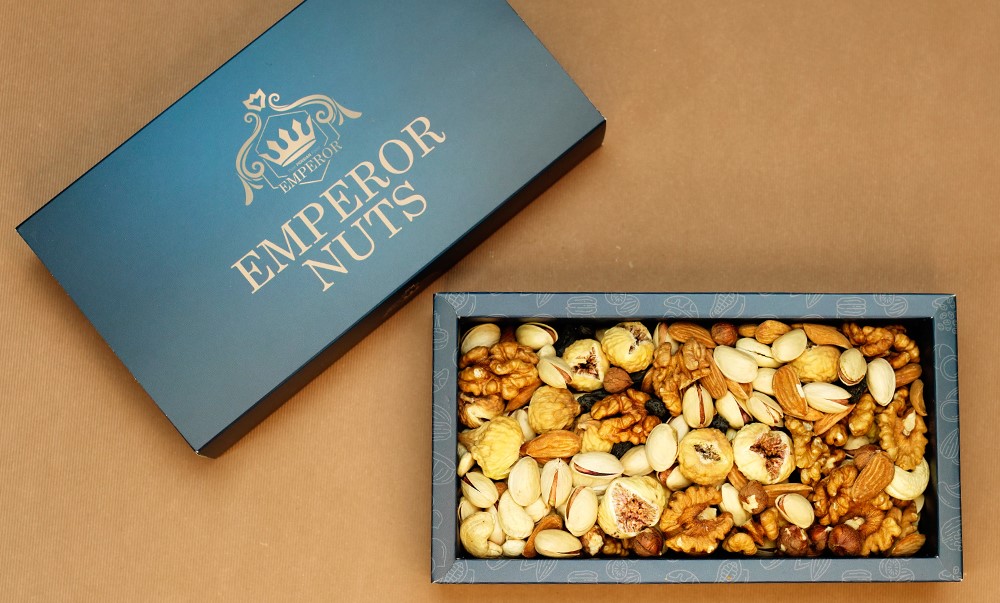
The Importance of Organic Certification for Iranian Products
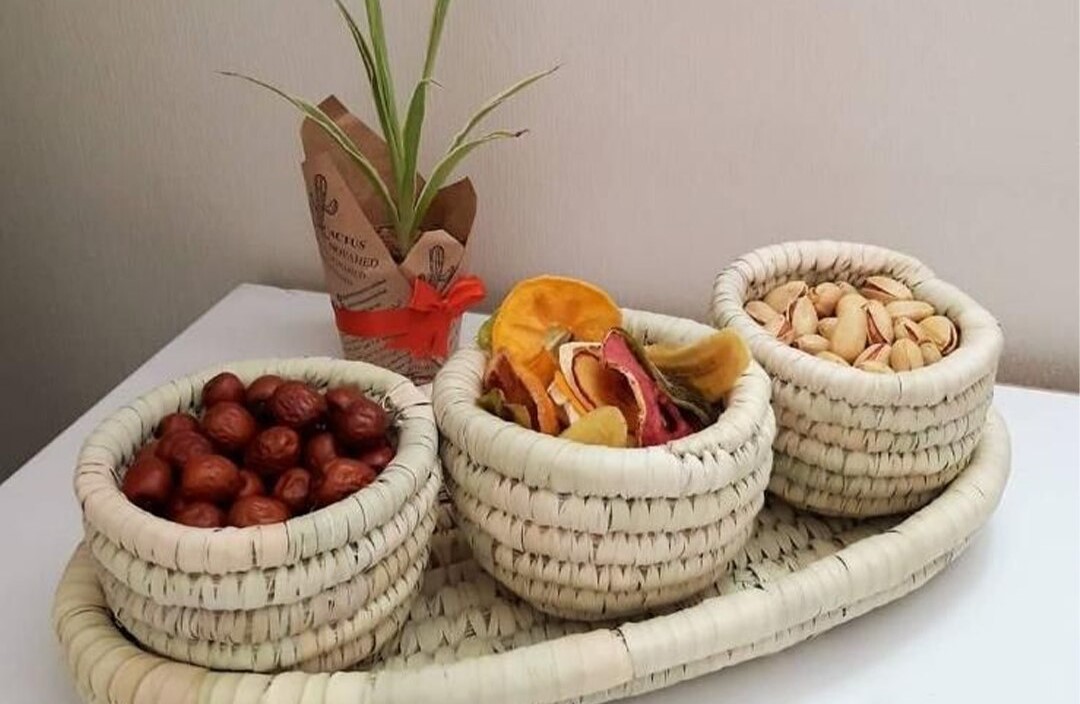
How to Create a Nut and Dried Fruit Gift Basket
Iran is home to a wide variety of nuts and seeds, many of which are not only staples of Persian cuisine but are also considered superfoods due to their rich nutritional profiles. These nuts and seeds are packed with healthy fats, vitamins, minerals, and antioxidants, offering a wide range of health benefits. Recognized globally for their superior quality, Iranian nuts and seeds are a vital part of a healthy diet, helping to boost energy, support heart health, and enhance overall well-being.
Let’s take a closer look at some of the most popular Iranian nuts and seeds that are classified as superfoods, and explore their health benefits.
1. Pistachios
Nutritional Powerhouse:
Iranian pistachios are world-renowned for their flavor and quality, and they are one of the country’s top exports. Pistachios are packed with nutrients, making them a true superfood.
Key Nutrients:
- Protein: Pistachios are one of the highest-protein nuts, with nearly 6 grams of protein per ounce, making them an excellent choice for vegetarians and vegans.
- Healthy Fats: They are rich in monounsaturated fats, which are good for heart health and help reduce bad cholesterol levels.
- Antioxidants: Pistachios are loaded with antioxidants, including vitamin E and lutein, which protect cells from oxidative damage and support eye health.
- Fiber: A single serving of pistachios provides a significant amount of dietary fiber, promoting healthy digestion and gut health.
Health Benefits:
- Heart Health: Pistachios have been shown to lower cholesterol levels and reduce the risk of heart disease due to their high content of healthy fats and antioxidants.
- Weight Management: Despite their rich calorie content, pistachios can help with weight management by promoting satiety, thanks to their protein and fiber content.
- Blood Sugar Control: Pistachios have a low glycemic index and can help regulate blood sugar levels, making them a good option for people with diabetes.
How to Enjoy:
- Snacking: Enjoy them roasted and salted or as part of a trail mix.
- Desserts: Use them in Persian sweets like Baklava or sprinkle them over desserts like ice cream and puddings.

baklava
2. Almonds
Nutritional Powerhouse:
Iran is a major producer of almonds, especially the Mamra almond, known for its high oil content and intense flavor. Almonds are a nutrient-dense superfood, offering numerous health benefits.
Key Nutrients:
- Vitamin E: Almonds are one of the richest sources of vitamin E, an important antioxidant that protects cells and supports skin health.
- Magnesium: They are high in magnesium, which plays a crucial role in maintaining muscle function, nerve health, and energy production.
- Calcium: Almonds are a great source of plant-based calcium, supporting bone health.
- Healthy Fats: Almonds are rich in monounsaturated fats, beneficial for heart health and reducing inflammation.
Health Benefits:
- Heart Health: Almonds can help lower LDL (bad) cholesterol and improve heart health thanks to their high vitamin E and monounsaturated fat content.
- Bone Health: With their calcium and magnesium levels, almonds support strong bones and reduce the risk of osteoporosis.
- Skin Health: The high vitamin E content in almonds helps protect the skin from oxidative damage, promoting a healthy and youthful appearance.
How to Enjoy:
- Snacking: Almonds can be eaten raw, roasted, or lightly salted as a healthy snack.
- Baking: Use almond flour in baking or add chopped almonds to granola, yogurt, or smoothies for an extra nutritional boost.
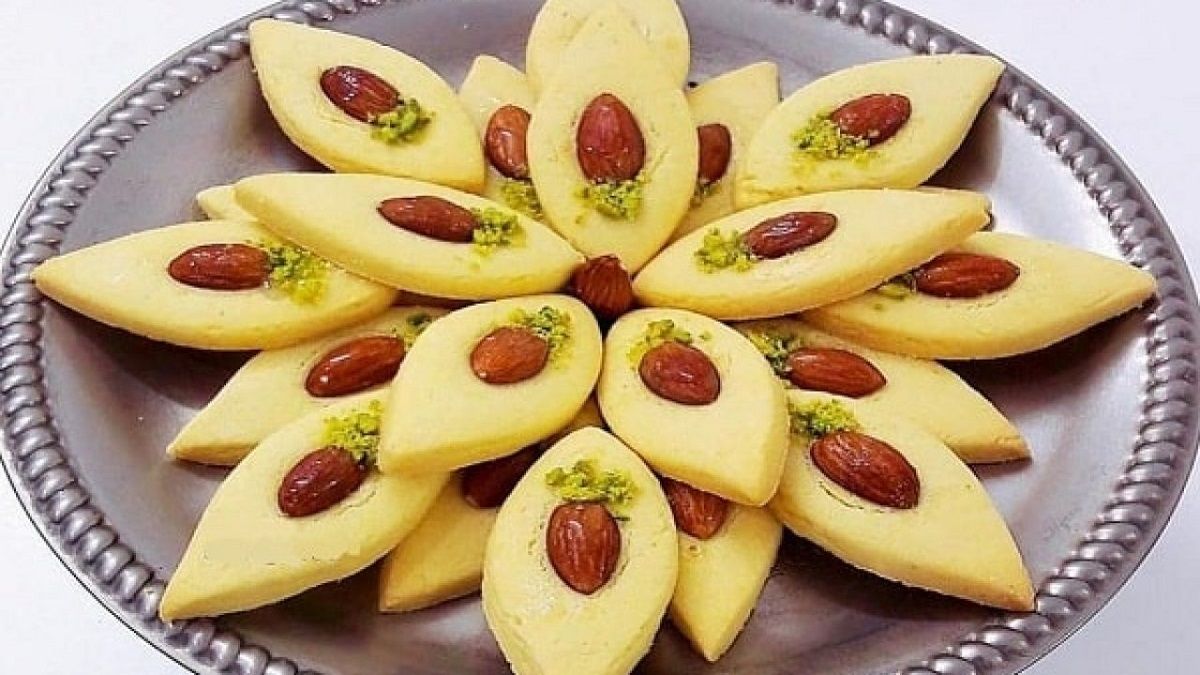
Persian Almond Cookies
3. Walnuts
Nutritional Powerhouse:
Walnuts are another superfood native to Iran, particularly valued for their high content of omega-3 fatty acids. Iranian walnuts are known for their rich flavor and are used in both savory and sweet dishes.
Key Nutrients:
- Omega-3 Fatty Acids: Walnuts are one of the best plant-based sources of alpha-linolenic acid (ALA), an omega-3 fatty acid that is essential for heart and brain health.
- Antioxidants: Walnuts are rich in antioxidants like polyphenols and vitamin E, which protect the body from oxidative stress.
- Protein: They contain a moderate amount of protein, making them a good source of plant-based protein.
Health Benefits:
- Brain Health: Walnuts are known for their brain-boosting benefits due to their high omega-3 content, which supports cognitive function and may reduce the risk of neurodegenerative diseases.
- Heart Health: The omega-3s in walnuts help reduce inflammation, lower blood pressure, and improve cholesterol levels, promoting cardiovascular health.
- Anti-Inflammatory Properties: Walnuts’ rich antioxidant content helps reduce inflammation in the body, potentially lowering the risk of chronic diseases like cancer and arthritis.
How to Enjoy:
- Snacking: Enjoy walnuts raw, toasted, or as part of a trail mix with other nuts and dried fruits.
- Cooking: Use walnuts in savory dishes like Fesenjan (a Persian stew made with ground walnuts and pomegranate molasses) or sprinkle them over salads and baked goods.
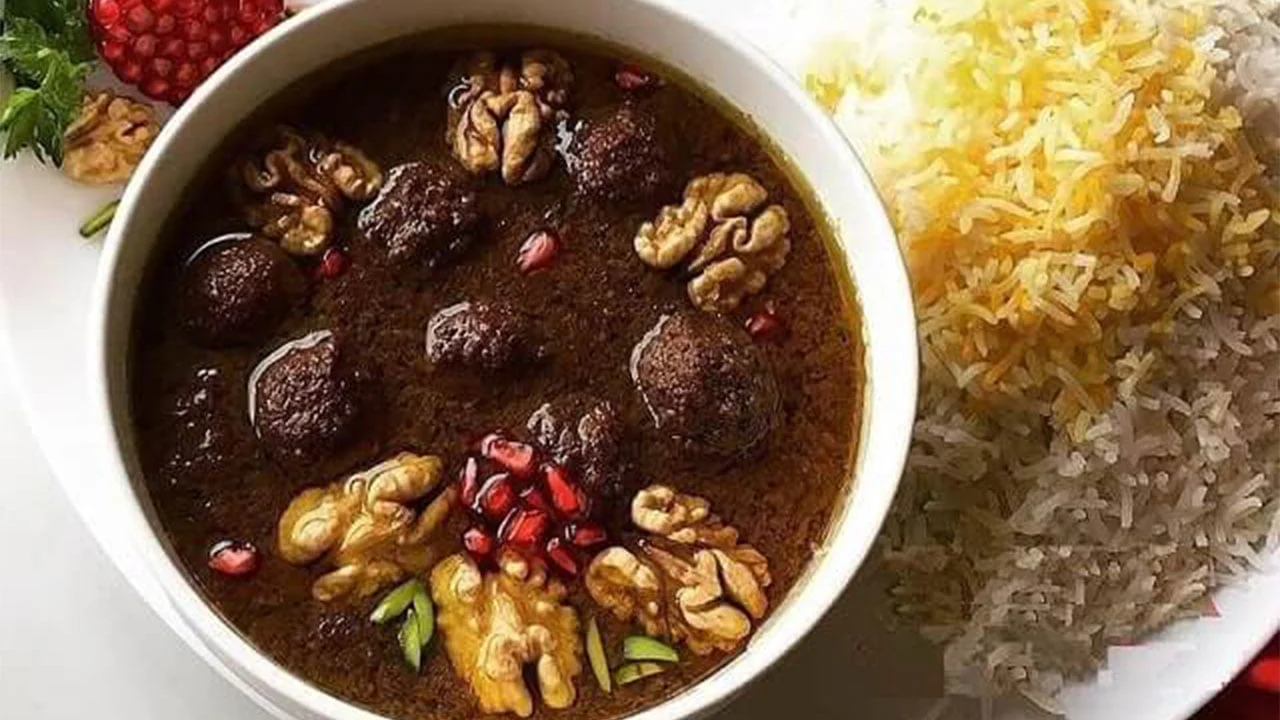
Fesenjan (Pomegranate and Walnut Stew)
4. Hazelnuts
Nutritional Powerhouse:
Hazelnuts, grown in the northern regions of Iran, are a highly nutritious nut with a variety of health benefits. Known for their slightly sweet flavor, they are often used in both culinary and confectionery applications.
Key Nutrients:
- Vitamin E: Like almonds, hazelnuts are an excellent source of vitamin E, which helps protect the skin and reduce the effects of aging.
- Healthy Fats: Hazelnuts are rich in monounsaturated fats, which support heart health and help lower bad cholesterol levels.
- Folate: Hazelnuts are a good source of folate, an important nutrient for cellular growth and development.
- Magnesium and Calcium: Hazelnuts contain these minerals, which support bone health and nerve function.
Health Benefits:
- Heart Health: Hazelnuts help lower LDL cholesterol and improve the overall lipid profile, reducing the risk of heart disease.
- Skin Health: The vitamin E in hazelnuts promotes healthy skin by fighting oxidative stress and helping to maintain the skin’s elasticity.
- Brain Health: Hazelnuts are a good source of thiamine and folate, which support cognitive function and brain health.
How to Enjoy:
- Nut Butter: Hazelnut butter is a delicious, nutrient-rich spread for toast or smoothies.
- Baking: Use chopped hazelnuts in baked goods like cakes, cookies, or bread, or as a topping for cereals or yogurt.
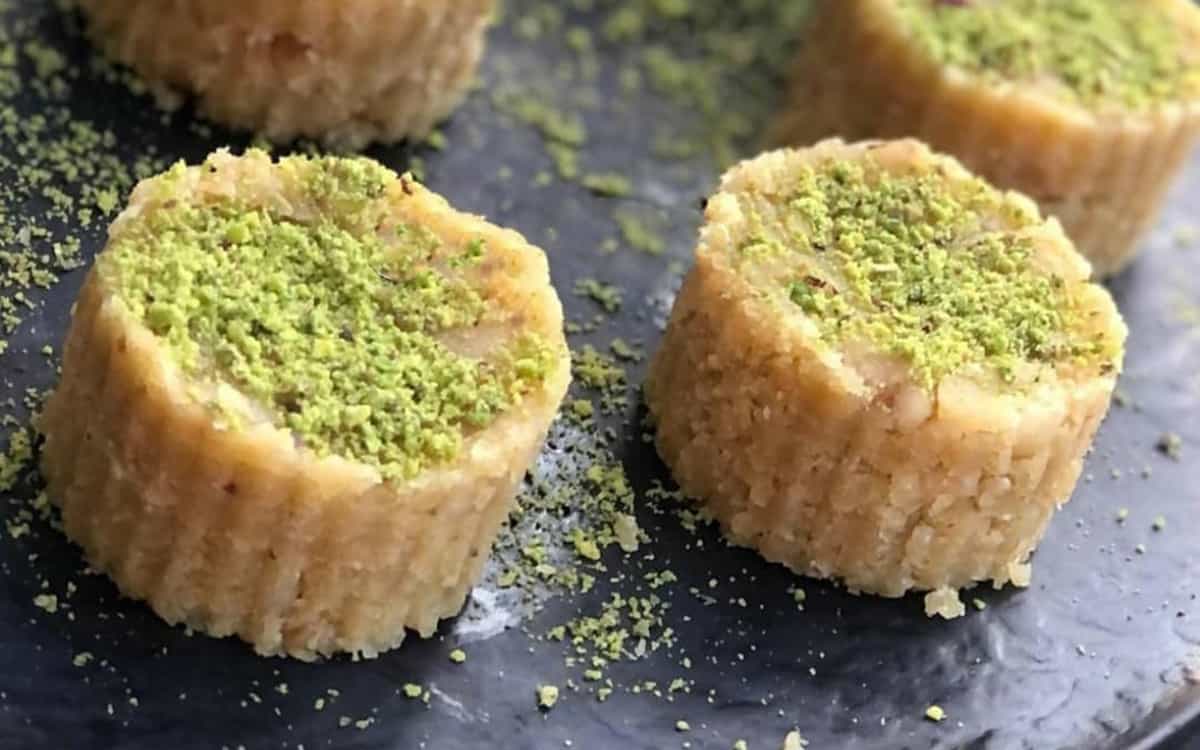
Hazelnut dessert
5. Sesame Seeds
Nutritional Powerhouse:
Sesame seeds have been cultivated in Iran for centuries and are known for their high nutritional value. These small seeds pack a powerful punch of essential nutrients and are commonly used in Persian cooking.
Key Nutrients:
- Healthy Fats: Sesame seeds are high in polyunsaturated and monounsaturated fats, which support heart health.
- Calcium: Sesame seeds are one of the best plant-based sources of calcium, making them important for bone health.
- Iron: They are also rich in iron, which is essential for red blood cell production and oxygen transport.
- Lignans: Sesame seeds contain unique plant compounds called lignans, which have antioxidant and anti-inflammatory properties.
Health Benefits:
- Bone Health: Due to their high calcium content, sesame seeds support strong bones and help prevent bone-related diseases like osteoporosis.
- Heart Health: The healthy fats and lignans in sesame seeds help reduce cholesterol levels and promote cardiovascular health.
- Hormonal Balance: Lignans in sesame seeds have been linked to improving hormone balance, particularly in women.
How to Enjoy:
- Tahini: Sesame seeds are ground into tahini, a paste used in sauces, dressings, and spreads.
- Topping: Sprinkle sesame seeds on salads, breads, or roasted vegetables for added texture and nutrition.
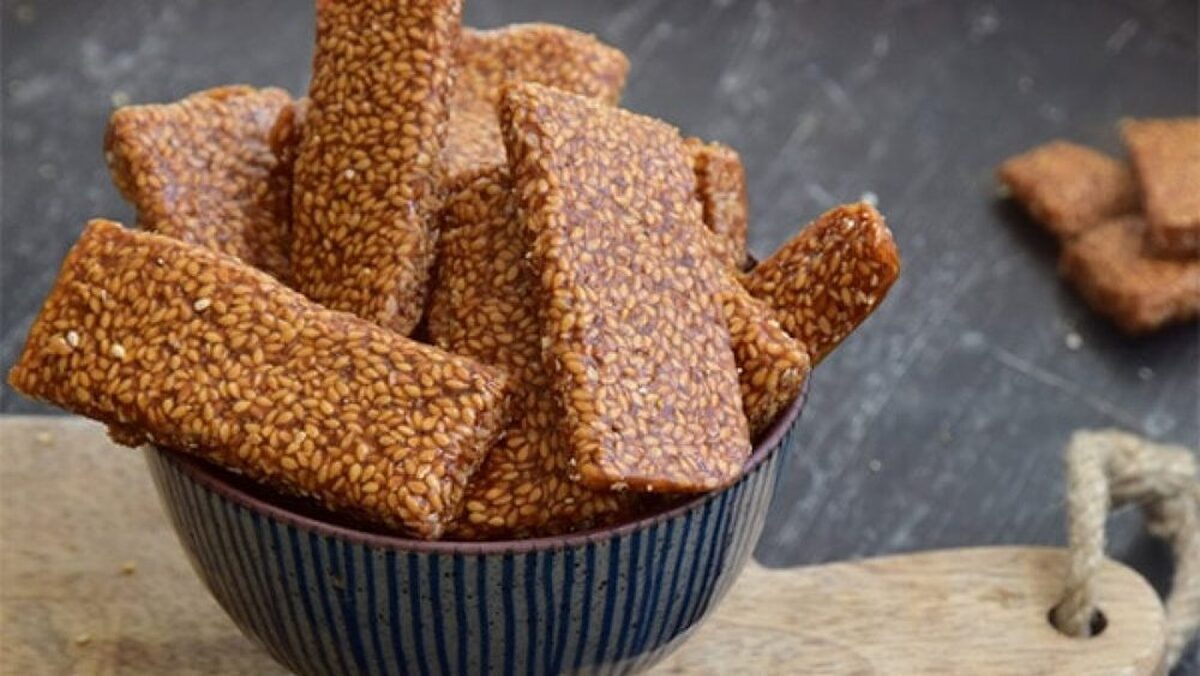
Sesame dessert
6. Pumpkin Seeds (Pepitas)
Nutritional Powerhouse:
Pumpkin seeds, or pepitas, are a popular snack in Iran, known for their high nutritional value. They are rich in minerals, antioxidants, and healthy fats, making them a powerful superfood.
Key Nutrients:
- Magnesium: Pumpkin seeds are one of the richest sources of magnesium, which is vital for muscle and nerve function, blood sugar regulation, and energy production.
- Zinc: They are also high in zinc, an important mineral for immune function and wound healing.
- Healthy Fats: Pumpkin seeds contain a good amount of healthy fats, including omega-3 and omega-6 fatty acids.
- Antioxidants: Pumpkin seeds are rich in antioxidants like vitamin E, which help protect the body from oxidative stress.
Health Benefits:
- Prostate Health: Pumpkin seeds have been shown to support prostate health, particularly in reducing the risk of benign prostatic hyperplasia (BPH).
- Immune Support: The zinc content in pumpkin seeds supports immune function and helps the body fight off infections.
- Heart Health: Magnesium and antioxidants in pumpkin seeds support heart health by regulating blood pressure and reducing the risk of cardiovascular diseases.
How to Enjoy:
- Roasted Snack: Roast pumpkin seeds with a little salt for a nutritious snack.
- Salads and Soups: Sprinkle pumpkin seeds over salads, soups, or grain bowls for added crunch and nutrition.
Conclusion
Iranian nuts and seeds, including pistachios, almonds, walnuts, hazelnuts, sesame seeds, and pumpkin seeds, are true superfoods that provide a wealth of nutrients essential for maintaining good health. These natural powerhouses are not only delicious but also offer a variety of health benefits, from supporting heart and brain health to improving digestion and skin health. Incorporating these Iranian superfoods into your daily diet can help boost your nutrient intake while offering a satisfying, flavorful experience.

